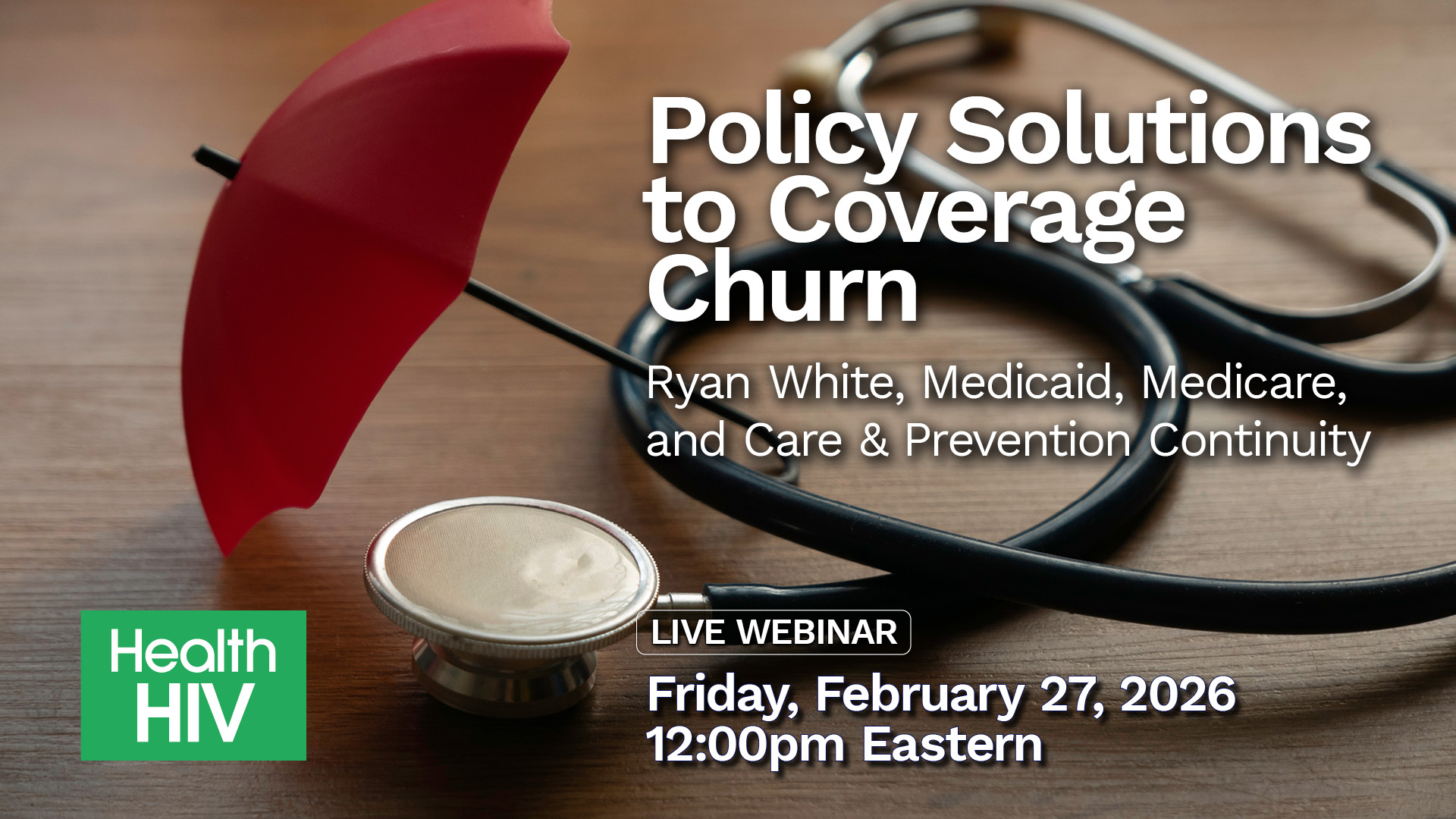
Policy Solutions to Coverage Churn: Ryan White, Medicaid, Medicare, and Care & Prevention Continuity
February 16, 2026Join HealthHIV on Friday, February 27, 2026 at 12:00pm Eastern for a webinar that will focus on how providers, navigators, and advocates respond in real-time when coverage instability disrupts HIV care across Medicaid, Medicare, Marketplace plans, and employer-sponsored insurance.
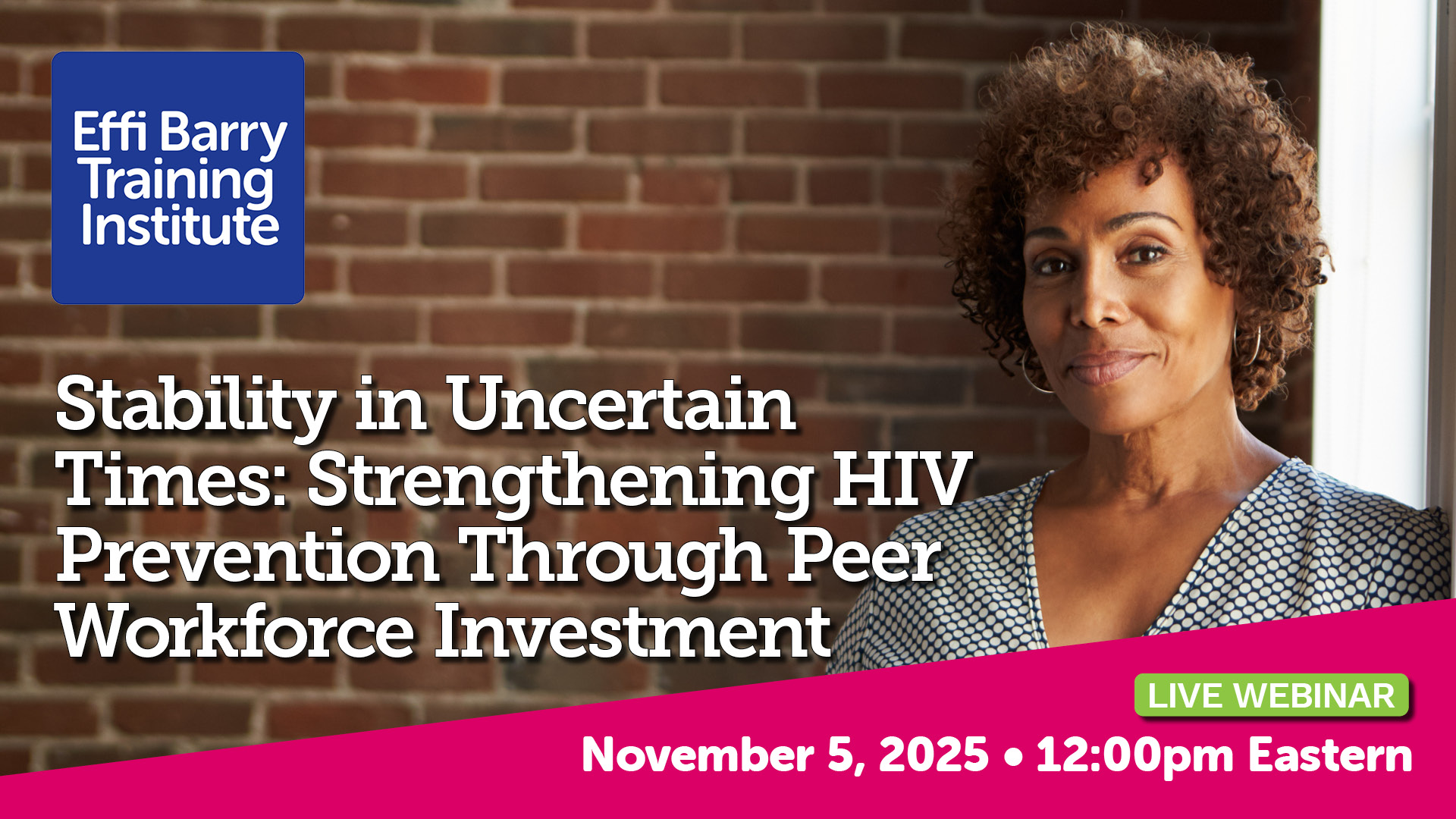
Stability in Uncertain Times: Strengthening HIV Prevention Through Peer Workforce Investment
November 5, 2025This webinar is designed to guide those in leadership roles within HIV/STI as well as harm reduction focused organizations to recruit, retain, and develop peers as part of an effective public health prevention workforce.
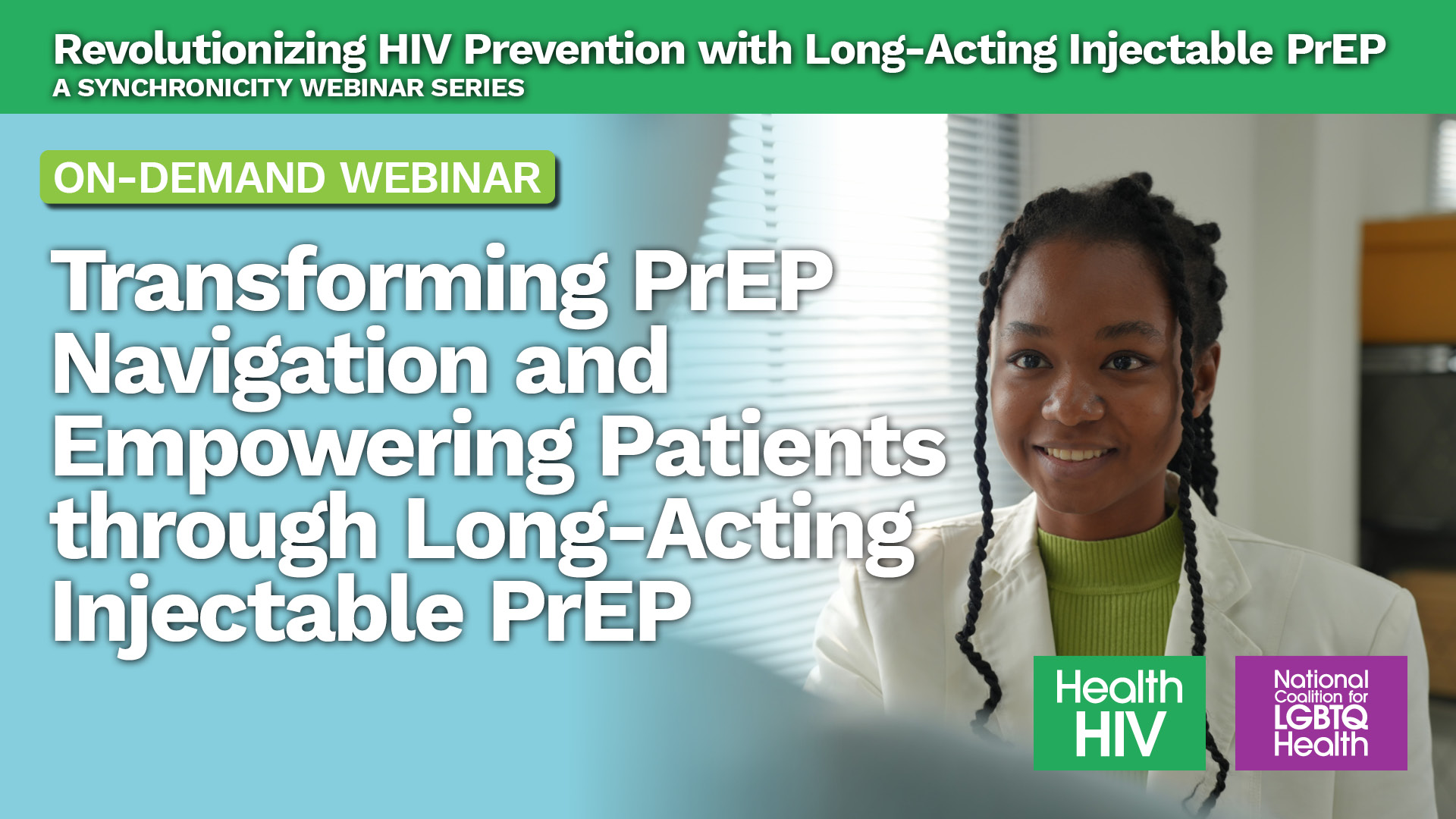
Transforming PrEP Navigation and Empowering Patients through Long-acting Injectable PrEP
September 18, 2025This webinar covers patient navigation touchpoints along the PrEP continuum for injectable lenacapavir, patient education strategies, expanding the capacity of PrEP navigation staff to implement injectable PrEP, and future opportunities for expanded implementation in mobile health settings.
Comprehensive, Evidence-Based, Consensus Guidelines for Prescription of Opioids for Chronic Non-Cancer Pain from the American Society of Interventional Pain Physicians (ASIPP)
August 1, 2025This webinar offers a focused overview of the 2023 Clinical Practice Guidelines from the American Society of Interventional Pain Physicians (ASIPP), highlighting evidence-based strategies for prescribing opioids to manage chronic non-cancer pain.
Crisis Management for Resilience and Adaptation in Times of Fiscal Uncertainty
May 22, 2025Organizations must be prepared to navigate financial challenges in an era marked by economic
volatility with agility and foresight. This timely webinar explores effective crisis management
strategies to help leaders and teams build resilience, maintain operational continuity, and adapt to fiscal uncertainty.
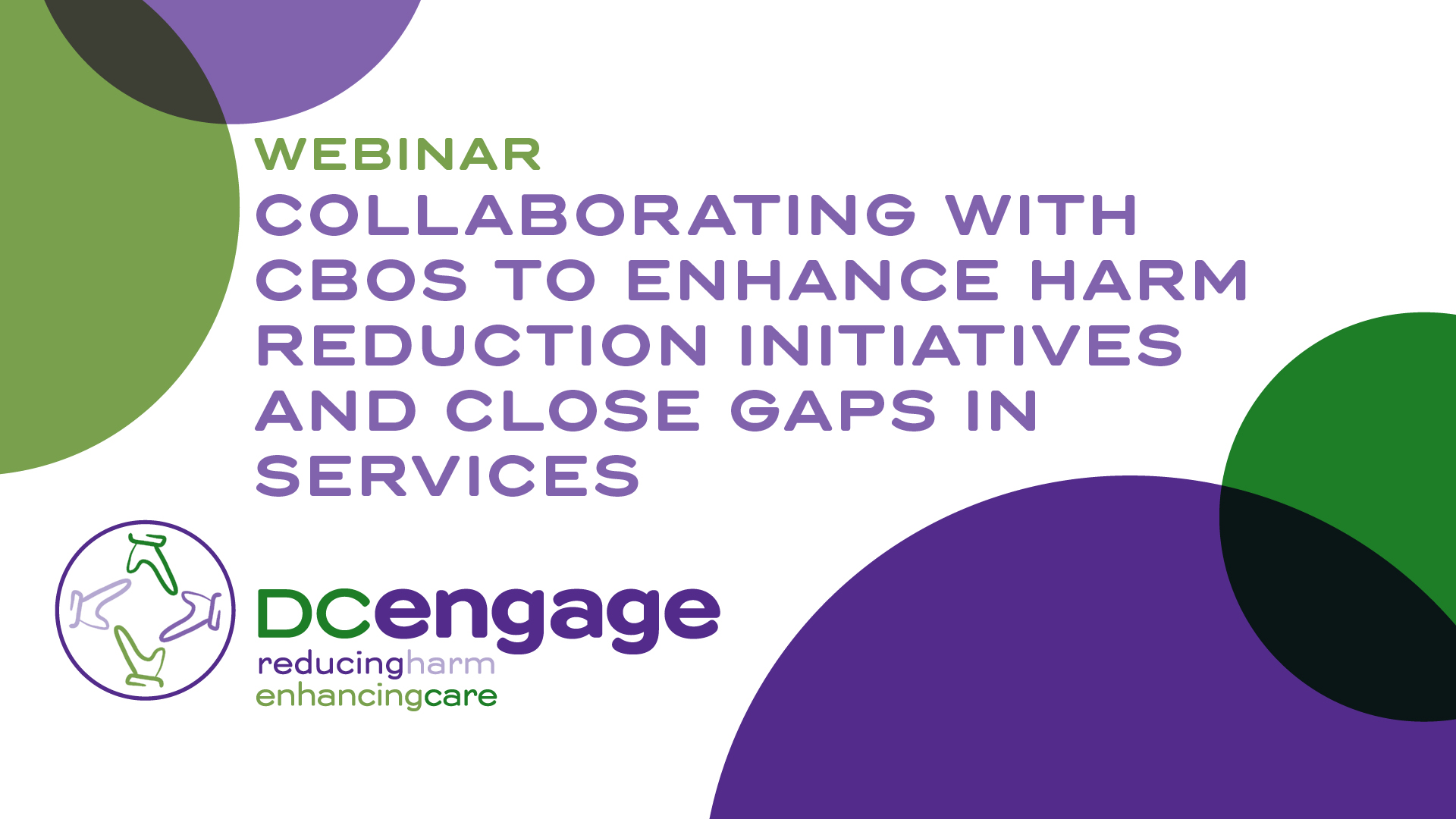
Collaborating with CBOs to Enhance Harm Reduction Initiatives and Close Gaps in Services
May 14, 2025This webinar will explore how community-based organizations can strengthen harm reduction efforts by working together to create a seamless network of support. By identifying service gaps and forming strategic partnerships within their immediate region, CBOs can offer a more comprehensive, wraparound approach to care—ensuring that individuals have continuous access to essential services like overdose prevention, housing support, healthcare navigation, and peer-led interventions.
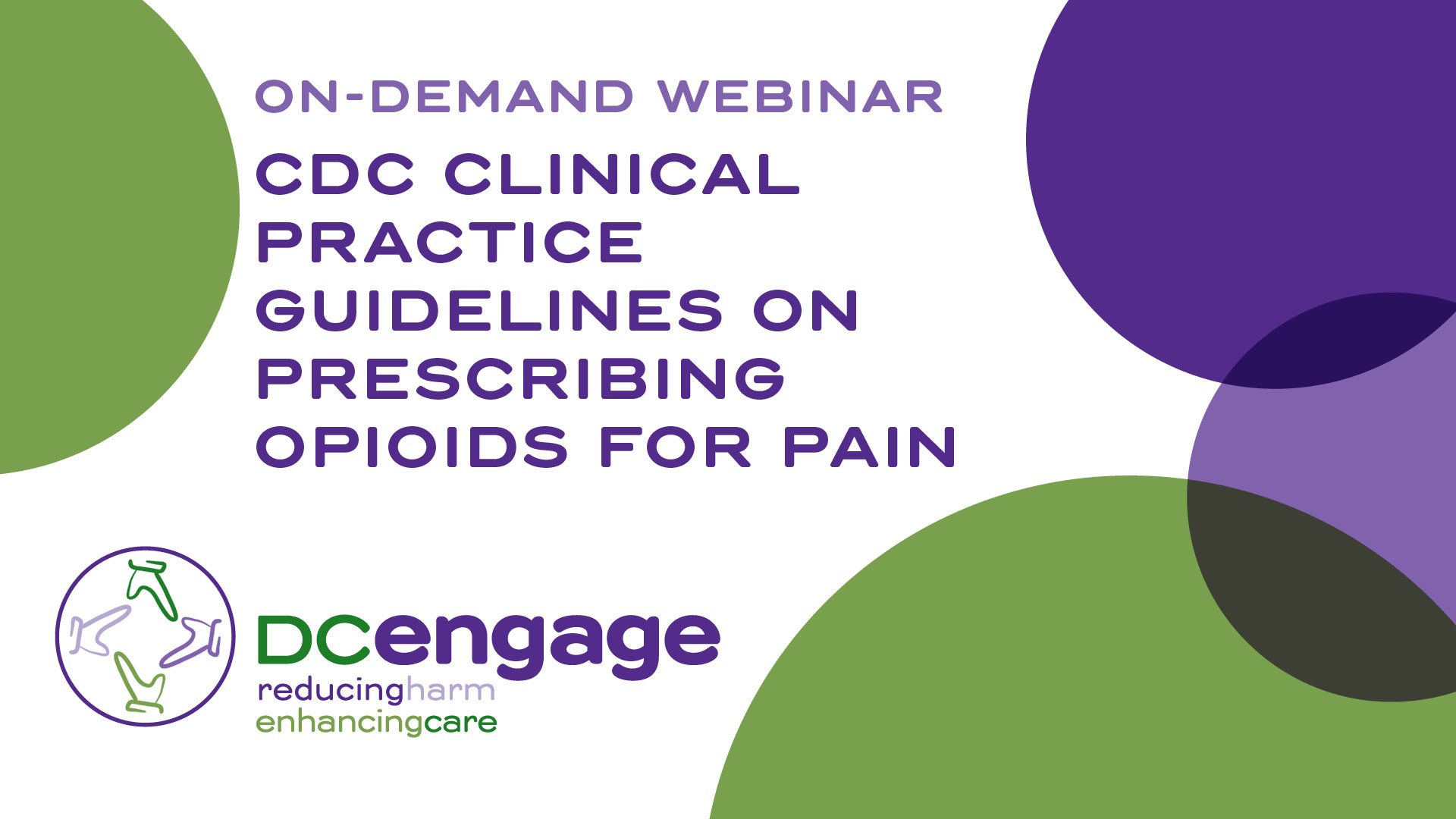
CDC Clinical Practice Guidelines for Prescribing Opioids for Pain
May 7, 2025This webinar will cover the CDC Clinical Practice Guideline for Prescribing Opioids for Pain, focusing on key recommendations, patient safety strategies, and practical approaches for effective pain management.
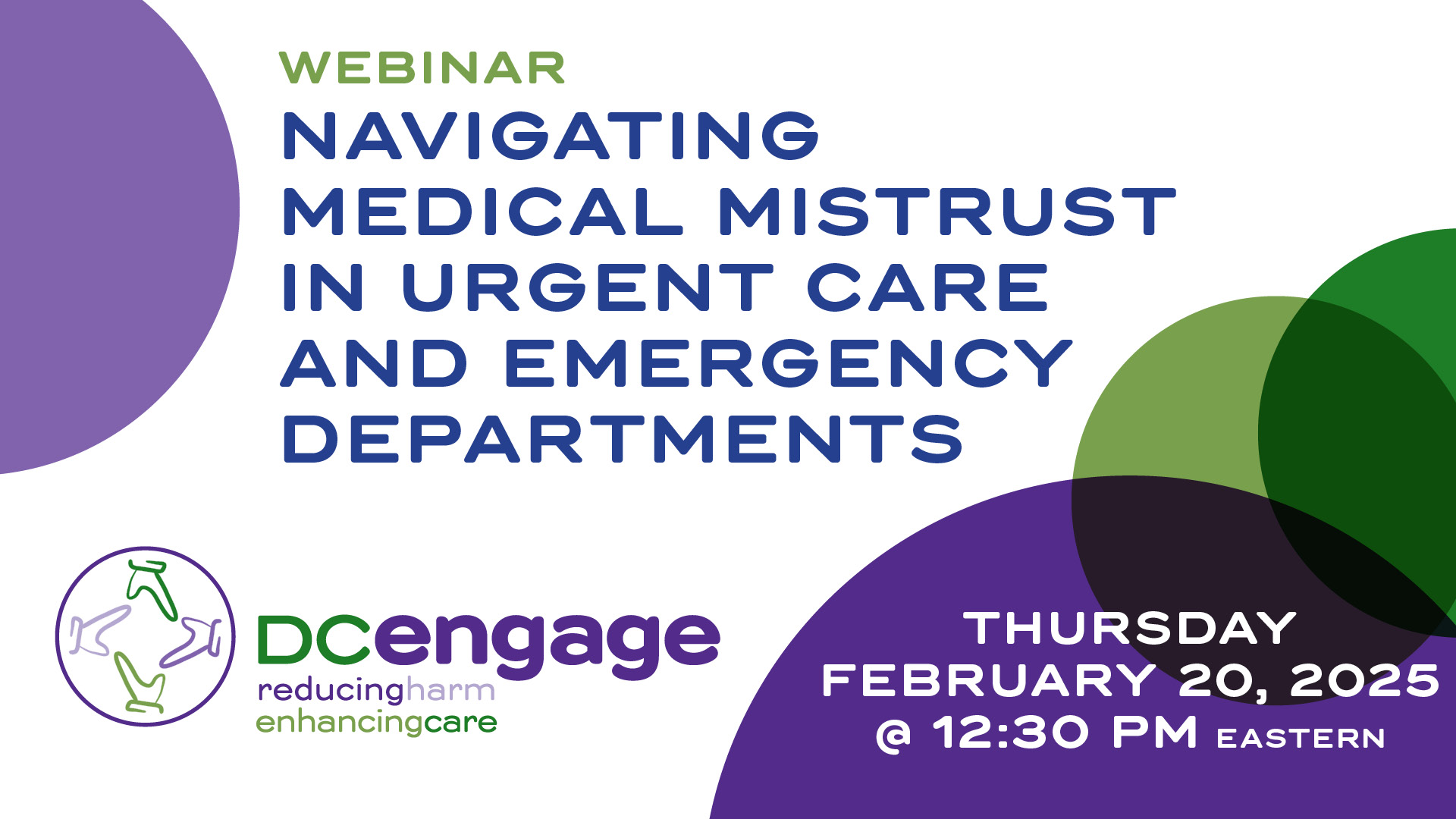
Navigating Medical Mistrust in Urgent Care and Emergency Departments
February 20, 2025This webinar will address the critical issue of medical mistrust among individuals who use drugs, especially within the high-stress environments of emergency departments and urgent care centers. Many people who use drugs face unique barriers to receiving compassionate, non-judgmental care in these settings, often due to past experiences of discrimination, stigmatization, and misunderstanding.

Optimizing Outreach Data for Fiscal Health
August 28, 2024This webinar highlights the importance of using multiple data sources to increase the efficacy of outreach, client engagement and program success.
Patient-Provider Relationship in Addressing Addiction
February 5, 2024This module details effective patient-provider communication in addressing opioid use, misuse, and abuse. It identifies and describes models of communication, applying relevant content to the process of addressing opioid use disorders and the concern of stigma in clinical practice.
Social Justice/Language Justice Implications for Services and Retention in Care
October 3, 2023This group discussion focuses on social justice and retention in care.
Social Justice/Language Justice
September 28, 2023This plenary focuses on how to eliminate and replace stigmatizing language and negative bias while also using person-first language within communities of people who struggle with substance use disorder to increase access to services and successful retention in care.

